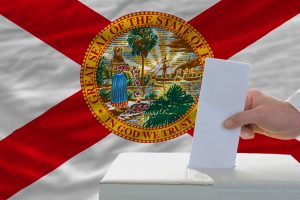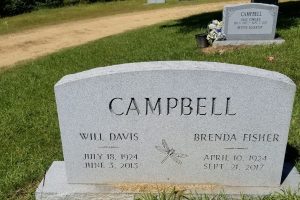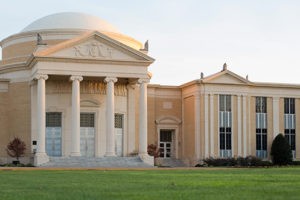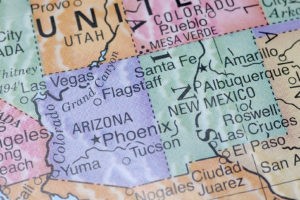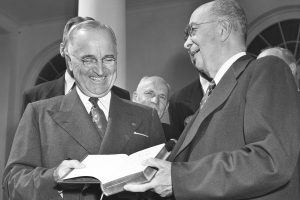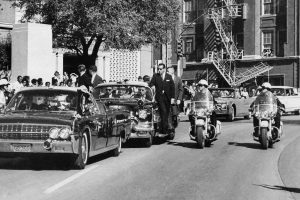I suspect that few people who frame their ideas, or their disagreements with others, in terms of “worldviews” have felt the need to deliberate on what that word means, let alone whether it is valuable or valid. Few, that is, outside the evangelical circles that have labored to develop this sensibility in churches and schools over the last many years.
This notion has a common-sense appeal and authority in 21st-century American life. Worldviews or world visions have become increasingly necessary in naming and talking about the many ways people see, reason about and live within our highly connected, densely diverse world.
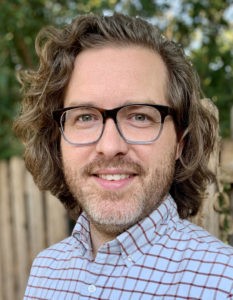
Jacob Alan Cook
It is relatively easy to understand what worldviews are about in their simplest form. We are talking about the different ways people frame and answer life’s most important questions. As Brian Walsh and Richard Middleton put them in their popular book Transforming Vision these questions are: Who am I? Where am I? What’s wrong? What’s the remedy?
You might have your answers to those questions ready. But if I were to ask what your worldview, or “the biblical worldview,” had to say about more specific questions like race, sex and economics, I suspect answers to these would bubble up too.
How should Christians engage contemporary problems generated along the color line? What economic forms (such as capitalism or socialism) fit the Christian vision of life together? In what ways should gender order human activity in this world? The very notion of a world-view (hyphen intended here), in itself, tends toward an increasingly comprehensive set of commitments. And as we expand into such realms of knowledge, we court the wedding of theology, science and political ideology.
What’s your worldview?
Just think for a moment about how you might illustrate what a worldview is. That is precisely what I tried to capture with the cover for my new book, Worldview Theory, Whiteness, and the Future of Evangelical Faith. A worldview is a perspective on the whole world held by an individual or (we might think) a group within the world that establishes a framework for understanding and engaging the world. It gives us handles on the world and its people so that we can intentionally do something with them. Some theorists have made the analogy to when Archimedes claimed that he would move the earth if given a place to stand and a lever long enough. Could the biblical worldview present just such a place to stand?
I must admit this all sounds pretty exciting. It’s energizing. Not a few people have been roused to service by the statement, issued forth by Abraham Kuyper as he marked the founding of the Free University in Amsterdam, “There’s not a square inch in the whole domain of human existence over which Christ, who is Lord over all, does not exclaim, ‘Mine’!” The biblical worldview, some say, lifts us to the heights of understanding so that we might get about the business of transforming the world to suit God’s will.
Yet, even on the surface, I sense a deceptive simplicity and a dangerous lack of humility in the sense that one can have a God’s-eye view of good and evil and everything and everyone, if not in detail, at least in the abstract.
“I sense a deceptive simplicity and a dangerous lack of humility in the sense that one can have a God’s-eye view of good and evil and everything and everyone, if not in detail, at least in the abstract.”
For my part, I did not set out to study worldview theory. (Or whiteness, for that matter.) My initial questions centered on just how complex human identities really are — and the problems that inevitably arise as complicated people try to represent their beloved groups in public. I was especially curious about the varying moral judgments and policy platforms of folks engaging in American politics “as evangelicals.” What does it mean to advocate for this or that policy as an evangelical? And, just as importantly, what is the significance of the many other evangelicals who argue differently in public? Or abstain from such engagement?
Evangelical diversity
After the last few years, it should be clear that not all who identify as evangelical share all the same worldview elements. But the prevailing evangelical use of worldview language makes it hard to explain how and why such folks disagree with each other (within a named worldview) about how to see and respond to specific issues.
This is all the truer as rank-and-file evangelicals have learned to think of their approach to the Bible as a reasonable, literal reading of God’s word. Early neo-evangelical leader Carl Henry appealed to “the authority of the Bible alone uninterpreted by traditions,” arguing this point as a mark of Protestantism’s genius. But if the Bible comes to us unmediated by church or academy, might we say something of the individuals sitting before the Bible themselves?
More personally, my doctoral work took me to Fuller Theological Seminary, where I studied with the late Baptist peacemaker Glen Stassen. At the flagship evangelical seminary, I found myself conversing with more folks who cared about the past, present and future of evangelicalism than I ever had before.
“At the flagship evangelical seminary, I found myself conversing with more folks who cared about the past, present and future of evangelicalism than I ever had before.”
And here I heard colleagues say things like, “I am an evangelical, and that is all that matters about my view of the world.” This, in response to a simple question about how that individual’s social location and history impact their judgment about a specific issue. Even at first blush, this response seemed demonstrably false to me. We all pick up ideas and convictions over time from a number of places, and we are bound to have blind spots.
I also met the incredulity of evangelicals who could not understand how another evangelical or “biblical Christian” could come to different conclusions about hot-button issues. Worldview-style thinking appears to amplify the divisive and polarized dynamic of American life. In the political arena, regular conventions of the two major parties have come to dramatize grand visions of American society — and frame the other side as a threat to all “we” hold dear.
Is worldview helpful?
Up to now, I have found few evangelical thinkers (even fewer in print) genuinely exploring whether worldview is a worthwhile concept. Many just assume its validity and build from there. If a particular way of talking becomes problematic, it can be amended.
When I looked for the roots of worldview theory in contemporary evangelical life, I zeroed in on Abraham Kuyper and Harold John Ockenga as ranking among the worldview concept’s most powerful expositors. The former was a Dutch theologian and statesman, among many other things; the latter was a pastor-theologian and co-founder of both the National Association of Evangelicals and Fuller Theological Seminary. As I pored over their writings and speeches, I discovered that these influential, publicly engaged Christian theologians simply were white supremacists and Christian nationalists. For example, both made use of the antediluvian argument around the curse of Ham in Genesis 9 as a rationale for modern racial differences. Such details were part of how they narrated the world around them, and they grounded even these terrible ideas in the Bible itself.
“As I pored over their writings and speeches, I discovered that these influential, publicly engaged Christian theologians simply were white supremacists and Christian nationalists.”
When points like this come up, many theorists retort that we can excise the bad ideas from what is, overall, a good and helpful framework for organizing our thoughts and engaging the world. It is incumbent on later generations to continually sift the original-creational or eternal principles out of the faulty applications of those principles in time and place.
A better way of thinking?
At the very least, we can conclude that believing one has the “biblical worldview” does not guarantee better thinking or improved character. Bear in mind that Kuyper, for all his historical situatedness, did not have to arrive at the conclusions he did about race and colony merely because of his cultural milieu. Even as he developed and defended his theological worldview, other Christians advocated a radically different racial sensibility — even a century earlier, as in the famous case of William Wilberforce (1759–1833).
More devastatingly, we might conclude that world-viewing, as a posture within the world, tends to lend divine gravitas to all one’s beliefs. And, at least for the folks who function as exemplars, it does not seem to nurture the humility to keep deliberating upon the details, looking for blind spots and errors. (In the next article, I will begin to argue that world-viewing has been far more wrapped up in white supremacy and colonialism than its contemporary apologists can admit.)
In raising up “the biblical worldview,” evangelical thought leaders have produced a signifier with little-to-no settled content but lots of invested passion and interest. Terms like this can absorb whatever meaning individuals bring to them, get people energized for activism, and provide conceptual cover for what turns out to be not very thoughtful ideas supplied by extrabiblical sources.
“In raising up ‘the biblical worldview,’ evangelical thought leaders have produced a signifier with little-to-no settled content but lots of invested passion and interest.”
Given the entrepreneurial nature of evangelicalism, built as it is upon individual free agents, voices are amplified based not on biblical appeal but on mass appeal, which all too often gives way to authoritarianism and demagoguery. Now people have the language for naming their defense of the biblical faith but need not deliberate much on the social-ethical import of Scripture to make use of the concept.
All this frenetic activity in service of the Christian worldview has fabricated a hollow shell around what has been, in fact, a massive discipleship failure. As Peter Wehner uncovered in The Atlantic, this situation has been set to implode at the right stimulus.
Worldview has persisted as a tool for imagining everyone in the world, ordering and judging their lives — but no one in particular. The impulse to apply abstract ideals to the concrete world does not encourage us to be moved with pity as we look into the eyes of those affected by our judgments. Or, put differently, thinking of oneself as a proxy agent for the biblical worldview provides a kind of escape hatch when we start to see how our abstract judgments might negatively impact real life others. It is not about us — we love the person — but God’s will is black and white. This sentiment makes it far too easy to evade responsibility for what are, in fact, our interpretations of God’s will.
Many others have worried about the fixation on belief or intellectual assent in evangelical circles. Once we have established the correct worldview, we more or less know that if and when we sin, we will know it — or could recognize it according to our worldview. Scarcely could it occur to us that our worldview could itself be harboring some sinful ideas — that we have blind spots. Looking outward, this is one reason we can at least tentatively embrace bad actors who represent our worldview: They may be sinners, but at least they are sinning within the correct worldview. Thus, worldview thinking embeds us in team-sport loyalties.
“They may be sinners, but at least they are sinning within the correct worldview.”
As evangelicals have engaged in political activism in the name of their worldview over the last many years, this rhetorical move has not invited others to live in a new way, to see and inhabit the world differently as they walk with the living God. Instead, worldview thinking has asked people to live the same old way but play for a new team.
What’s the alternative?
Of course, we struggle to imagine an alternative to world-viewing. My goal here is less to make an argument than to open some of the conduits of energy coursing around the worldview concept, for good and bad. The concerns I have flagged above belong primarily to the everyday, practical variety. Over the next several weeks, I will connect with conversations around whiteness in church and society, beginning with an explanation of what I even mean by “whiteness.” And I will introduce critical angles on worldview theory emerging in psychology, sociology, and sound theology. Before all is said and done, I will also do my best to present a compelling alternative.
What I am after is a patient, thorough exploration of why world-viewing gets who we are — individually, together and before the living God — wrong. And I hope to encourage a faith in which we become more open to the living God, more likely to grow in Christlikeness, and less anxious (and combative and polarizing) as we live truthfully with and for others.
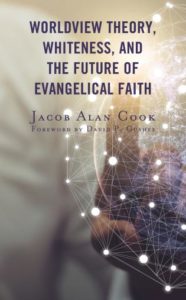 This is the first in a series of articles introducing the hypothesis of the author’s new book, Worldview Theory, Whiteness, and the Future of Evangelical Faith.
This is the first in a series of articles introducing the hypothesis of the author’s new book, Worldview Theory, Whiteness, and the Future of Evangelical Faith.
Jacob Alan Cook is a postdoctoral fellow at Wake Forest University School of Divinity. He is the author of Worldview Theory, Whiteness, and the Future of Evangelical Faith as well as chapters on Christian identity, peacemaking and ecological theology. He earned a Ph.D. from Fuller Theological Seminary.
Related articles:
Research finds Christians hold dizzying array of historically non-Christian beliefs
The deconstruction of American evangelicalism | Opinion by David Gushee
California and the making of American evangelicalism | Analysis by Andrew Gardner















